Filter by
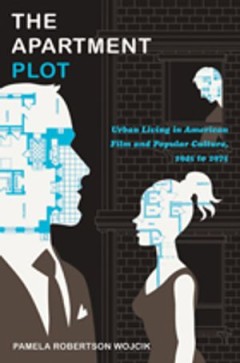
The Apartment Plot: Urban Living in American Film and Popular Culture, 1945 t…
Rethinking the significance of films including Pillow Talk, Rear Window, and The Seven Year Itch, Pamela Robertson Wojcik examines the popularity of the “apartment plot,” her term for stories in which the apartment functions as a central narrative device. From the baby boom years into the 1970s, the apartment plot was not only key to films; it also surfaced in TV shows, Broadway plays, lite…
- Edition
- -
- ISBN/ISSN
- 9780822347521
- Collation
- -
- Series Title
- -
- Call Number
- 791.43 WOJ a
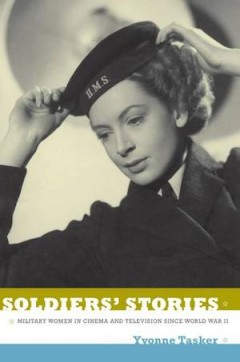
Soldiers' Stories: Military Women in Cinema and Television since World War II
From Skirts Ahoy! to M*A*S*H, Private Benjamin, G.I. Jane, and JAG, films and television shows have grappled with the notion that military women are contradictory figures, unable to be both effective soldiers and appropriately feminine. In Soldiers’ Stories, Yvonne Tasker traces this perceived paradox across genres including musicals, screwball comedies, and action thrillers. She explains how…
- Edition
- -
- ISBN/ISSN
- 9781478091479
- Collation
- -
- Series Title
- -
- Call Number
- 791.45 TAS s
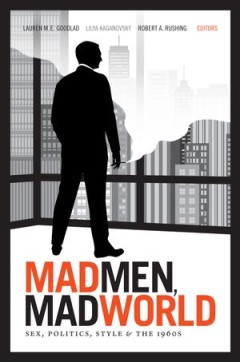
Mad Men, Mad World: Sex, Politics, Style, and the 1960s
Since the show's debut in 2007, Mad Men has invited viewers to immerse themselves in the lush period settings, ruthless Madison Avenue advertising culture, and arresting characters at the center of its 1960s fictional world. Mad Men, Mad World is a comprehensive analysis of this groundbreaking TV series. Scholars from across the humanities consider the AMC drama from a fascinating array of pers…
- Edition
- -
- ISBN/ISSN
- 9780822354024
- Collation
- -
- Series Title
- -
- Call Number
- 791.45
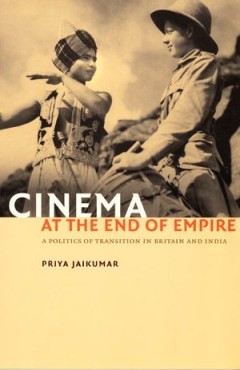
Cinema at the End of Empire: A Politics of Transition in Britain and India
How did the imperial logic underlying British and Indian film policy change with the British Empire’s loss of moral authority and political cohesion? Were British and Indian films of the 1930s and 1940s responsive to and responsible for such shifts? Cinema at the End of Empire illuminates this intertwined history of British and Indian cinema in the late colonial period. Challenging the rubric…
- Edition
- -
- ISBN/ISSN
- 9781478091387
- Collation
- -
- Series Title
- -
- Call Number
- 791.43 JAI c
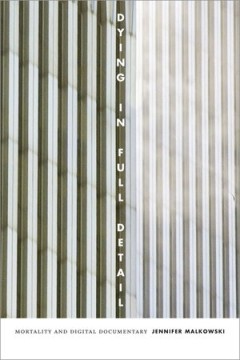
Dying in Full Detail: Mortality and Digital Documentary
In Dying in Full Detail Jennifer Malkowski explores digital media's impact on one of documentary film's greatest taboos: the recording of death. Despite technological advances that allow for the easy creation and distribution of death footage, digital media often fail to live up to their promise to reveal the world in greater fidelity. Malkowski analyzes a wide range of death footage, from feat…
- Edition
- -
- ISBN/ISSN
- 9781478091080
- Collation
- -
- Series Title
- -
- Call Number
- 791.43 MAL d
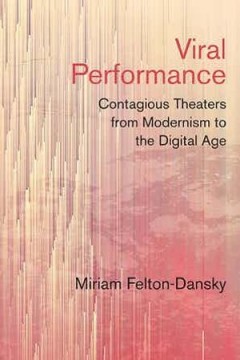
Viral Performance: Contagious Theaters from Modernism to the Digital Age
This volume proposes the viral as a means of understanding socially engaged and transmedial performance practices since the mid-20th century. It rethinks the Living Theatre’s Artaudian revolution via the lens of affect theory, brings attention to General Idea’s media-savvy performances of the 70s, explores Franco and Eva Mattes and Critical Art Ensemble, and surveys the dramaturgies and pol…
- Edition
- -
- ISBN/ISSN
- 9780810137165
- Collation
- -
- Series Title
- -
- Call Number
- 792 DAN v
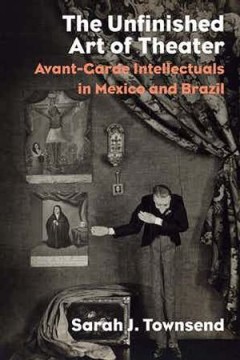
The Unfinished Art of Theater: Avant-Garde Intellectuals in Mexico and Brazil
The avant-garde posits the possibility of total rupture with the past. This book pulls back on this futuristic impulse by showing how theater became a key site for artists on the edge of capitalism to reconfigure the role of the aesthetic between 1917 and 1934. The book argues that this “unfinished art”—because of its weakness as a representative institution in Mexico and Brazil, where th…
- Edition
- -
- ISBN/ISSN
- 9780810137417
- Collation
- -
- Series Title
- -
- Call Number
- 792 TOW u
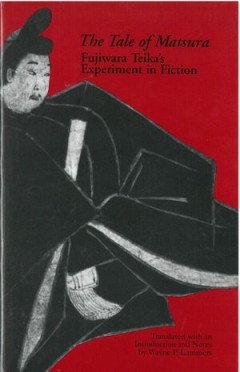
The Tale of Matsura: Fujiwara Teika’s Experiment in Fiction
Fujiwara Teika is known as the premier poet and literary scholar of the early 13th century. It is not so widely known that he also tried his hand at fiction: Mumyozoshi (Untitled Leaves; ca. 1201) refers to “several works” by Teika and then names Matsura no miya monogatari (The Tale of Matsura; ca. 1190) as the only one that can be considered successful. The work is here translated in full,…
- Edition
- -
- ISBN/ISSN
- 9780472901593
- Collation
- -
- Series Title
- -
- Call Number
- -
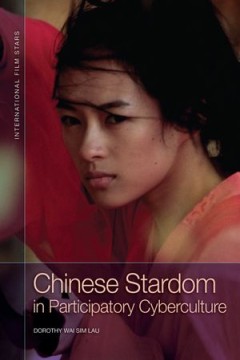
Chinese Stardom in Participatory Cyberculture
As Chinese performers have become more visible on global screens, their professional images - once the preserve of studios and agents - have been increasingly relayed and reworked by film fans. Web technology has made searching, poaching, editing, posting and sharing texts significantly easier, and by using a variety of seamless and innovative methods a new mode of personality construction has …
- Edition
- -
- ISBN/ISSN
- 9781474430357
- Collation
- -
- Series Title
- -
- Call Number
- 791.43 LAU c
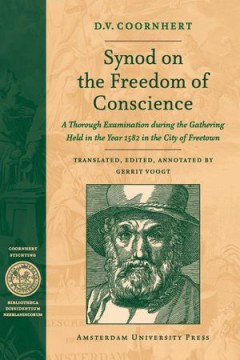
Synod on the Freedom of Conscience: A Thorough Examination during the Gatheri…
This is the first English translation of a pivotal work in the history of religious tolerance. In Synod on the Freedom of Conscience (1582) the Dutch humanist Dirck Volckertszoon Coornhert (1522-1590) provides one of the first book-length pleas for religious freedom published in the West. His central concern in his writings and exchanges with ministers of the Reformed Church was the safeguardin…
- Edition
- -
- ISBN/ISSN
- 9789089640826
- Collation
- -
- Series Title
- -
- Call Number
- -
 Computer Science, Information & General Works
Computer Science, Information & General Works  Philosophy & Psychology
Philosophy & Psychology  Religion
Religion  Social Sciences
Social Sciences  Language
Language  Pure Science
Pure Science  Applied Sciences
Applied Sciences  Art & Recreation
Art & Recreation  Literature
Literature  History & Geography
History & Geography